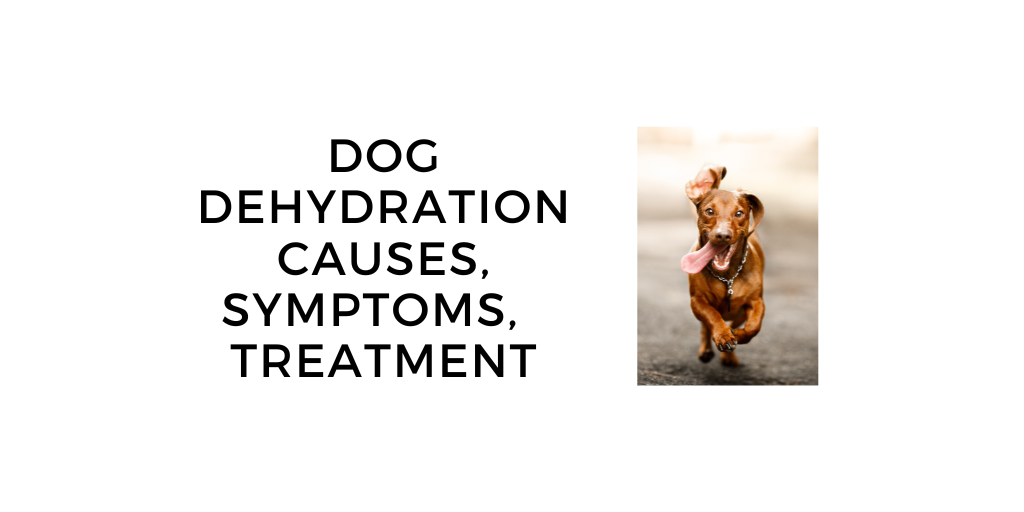
How to Treat Dog Dehydration: Causes, Symptoms and Safe Treatment
Causes and Symptoms of Dog Dehydration
Your dog is acting unusual lately and you are concerned that they may have be dehydrated.
Dehydration can be caused by medical conditions like kidney disease, diabetes and liver failure. But it can also be due to other issues like excessive running, a stomach bug or heat exposure.
Read below to learn about the causes and signs of dehydration in dogs and how to treat it quickly so your pet stays hydrated for life.

Before we get started, I'll mention that a simple way to rehydrate your pup is by adding a human-grade chicken bone broth to their meals. The best one for this is made by Bluebird Provisions that is full of nutrients and protein.
Let's get into it!
Is your dog dehydrated
Dogs get dehydrated when their bodies lose more water and electrolytes than it takes in. This can cause problems with your pet's body temperature, joints, digestion, muscle function, nerve activities and internal organs.
There are safe and effective treatment options available to you if your fury friend is dehydrated. But we need to be sure that this is the problem in the first place.
Dog Dehydration Symptoms
Signs and symptoms of dehydration in dogs include lethargy, a loss of appetite, excessive panting, loss of skin elasticity, dry / sticky gums and sunken / dry eyes.
Loss of appetite is a common symptom and sometimes pups are not interested in having a drink either. Let's go through each of these briefly.
Panting
The first symptom you'll notice is excessive panting. It is how canines cool themselves down since they do get the sweat evaporation benefits the same way humans do.
It is normal for them to pant after long walks or when they are generally feeling warm. However, if they continue to heavily pant, even after 20-30 minutes of rest, it could mean your pup is suffering from heat stroke. They may have difficulty breathing in extreme cases.
Skin Elasticity Signs
The easiest way to figure out if your pooch is dehydrated is to check their skin elasticity. One of the common signs of dehydration is a loss of elasticity.
To do this you pinch some of the skin between their shoulder blades. When you let go it should spring back into place right away. If the skin only returns to normal slowly or remains pinched, they are probably suffering from poor hydration.

The elastic test is telling because the longer it takes their skin tissues to return to normal the more dehydrated they are.
Dogs Gums and Dehydration
Another one of the common signs of dehydration in canines is to look inside their mouth for dry and sticky gums. A well-hydrated canine's gums are normally pink and look wet and glossy, turning to white for a second before returning almost immediately back to their normal color.
If your pooch is dehydrated, their gums will stay whiter for longer because the capillaries in the gums are taking longer to refill. You can also look for sunken and dry eyes in extreme cases.
Causes of Dehydration in Dogs and Puppies
The main causes of dehydration in dogs are not drinking enough water, illness that cause fever, diarrhea and vomiting, perspiration through paws and overheating. Overheating can occur due to exercise in extreme heat and being left in a hot car.
Extreme cases can be caused by diabetes, issues with liver functions, kidney disease and cancer. That is why it is important to check with your neighborhood vet immediately if your pet shows any signs of dehydration. It an be life threatening because of the damage it does to major organ function.
When in doubt, take them to your emergency animal hospital / center for testing.
Vomiting and/or Diarrhea
If your dog is dehydrated and is also vomiting or has diarrhea, this is a sign of an imbalance of fluids. Which can be an early indicator of more serious health issues.
Dehydration can make vomiting and diarrhea worse almost instantly, so be very careful in these circumstances and seek the help of a professional or emergency vet. They can make a diagnosis and give you treatment options quicker than googling.

Not Getting Enough Water
Dogs can get dehydrated if they are not drinking enough water or if they are urinating excess water. If your dog is not drinking enough, it is a good idea to see your vet.
There are foods like chicken bone broth you can add to their dish to encourage them to drink. The delicious meaty taste will get any stubborn drinker hydrated because of the natural sodium and other nutrients.
The best brand for this is Bluebird Provisions and you can get it delivered to your home on Amazon Prime.
Dehydration In Puppies Causes
Causes of dehydration in puppies include parvovirus, intestinal parasites and eating foreign things (toys, etc). Let's go through each briefly.
Parvovirus
Parvovirus is a highly contagious virus for all breeds that can lead to fluid loss and hydration issues in puppies. The best defence is to get your pup vaccinated and keep them at a healthy bodyweight to protect them.
My rescue has parvo when he was a puppy and it was awful. We thought we were going to lose him.

Intestinal Parasites (Worms)
Puppies are more likely to get intestinal parasites than adult dogs. This is because they can get exposed to them before they are old enough to take worm protection medicine and vaccinations.
They can cause water loss and blood flow issues that can threaten your puppies' life. Stool samples and blood tests are the best way to determine if your puppy suffers from heartworm or ringworm.
Your vet will be able to do the test and get your pup back to health.
Foreign Body Obstruction (Eating Rocks, Toys, Etc.)
Puppies are prone to eating things like socks, tennis balls, remotes, chew toys and more. One of the reasons for concern is that they can become stuck leading to a gastrointestinal obstruction.
If this happens, they will be incredibly uncomfortable. They may not be able to eat or drink. The obstruction could cause vomiting.
If you see your puppy eating something they shouldn't, take my advice and call your veterinarian immediately. My 2 year old Husky (Nitotem) chewed and swallowed a bacon scented from another dog owner at a dog park.
Waiting for an appointment was not an option. So we took him to emergency. They tried to induce vomiting then scope it out with no success because it was too large. We had to do a full on surgery which involved going into his stomach to get it out.
Treatment for Dog Dehydration
Treating dog dehydration includes moving your dog indoors, getting them to drink, checking their condition, considering extra electrolytes and constantly monitoring their energy levels.
First thing, get them out of the sun or heat to a cooler environment. Basements are great for this. I have a 'chilly pad,' which is a 3 ft mat filled with water. In the summer I place it in the fridge, then take it out and get my husky to lay on it after a hot walk.
Hydrating a Dog
Next, you want to entice them with yummy drinks. Make sure they have fresh, cold water in their bowl. If they are no interested in drinking, you can try something like bone broth.
Even the pickiest eaters love the taste and will drink it up. A human-grade one will have 200-300 mg potassium per serving along with chloride and magnesium.
In the summer, most dogs love ice cubes. You can also pour broth into your ice cube tray for some extra electrolytes.
Treating Severe Dehydration in Dogs
Treating severe dehydration in dogs is tricky because every case is different. Some suggestions are to try an electrolyte supplement and check with your vet or emergency vet care center immediately.
In cases of heatstroke, they might hook them up to IV fluids or offer oral rehydration solutions.
If you are immediately concerned about their condition, you could try an electrolyte replacement fluid. Read my guide to the best electrolyte supplements for dogs.
Each product is a bit different in terms of ingredients, instructions, recommendations and potency. Read the article for all the information on which one will fit your needs. Some are used for recovery post-surgery, while others are intended for exercise activities in the heat.
Still concerned and can't get them to drink or feel better? Better call your vet to be safe.
How to Prevent Dog Dehydration
You can easily prevent dog dehydration by making sure they have water at all times, keeping up to date with their vaccines and vet checkups, keeping inedible objects out of reach and watching what they eat.
Do dogs drink water (YES.)
Dogs do drink water, but they can only get what you give to them in their bowl. The average dog's diet consists of approximately 1/3rd water.
Some will drink more than others, so you'll need to adjust the supply to meet their needs. Depending on the weather or their activity level, they may need more than usual.
Also, make sure you to follow these guidelines:
- Keep the toilet lid closed to avoid allowing bacteria to spread.
- Carry a portable water bowl when you're out.
- Keep their food fresh and don't feed them human food.
- Consider flavoring the water with chicken broth something to entice picky drinkers.
Give Them More Water During Exercise
I take my two dogs running and hiking all year. In the summer months, we have to plan carefully to make sure they stay hydrated.
We bring portable bowls and extra water to help them drink. You should also scout your route ahead of time for natural water sources like rivers, streams and lakes.
Finally, go early to avoid the mid to late afternoon heat of the day. This is the most important part. If they refuse water after playing in the sun, check with your veterinarian.
Any always check their behavior for things that are out of the ordinary. You know them better than anyone, so you'll be able to tell if they are not feeling well.
Stay up-to-date on shots and parasite prevention
Heartworm, flea and tick prevention are becoming increasing important for dogs in areas that have ticks. If you dog is active in the forest, then you should consider getting this medicine regularly.
Dogs should be vaccinated and regularly screened for heartworm and flea/tick prevention.
Watch what your dog eats and avoid foreign items
It's easy to give pets the occasional scraps from the kitchen table. But do not get in the habit of giving them foreign food. This conditions them to think it is okay to seek out these new flavors. It will make them more likely to find these things when out for walks or in other, open environments.
Fatty, palatable food for humans must be avoided. Also take care that your garbage lids are not easy to access (aka the dog buffet).

How long can dogs go without water before becoming dehydrated?
Dogs can survive between 48 and 72 hours without drinking, but survival is not what you are looking for in a companion. A dog's water intake depends on its size, breed, and health.
Fluid intake should be 15-30 ml per pound of body weight each day to maintain electrolyte balance. Although the amount varies by breed and size. The hydration process takes a long time, so don't let them get behind.
Closing Thoughts
Dehydration in dogs poses serious health risks that can lead to other problems. However, it is relatively easy to treat and prevent.
The most important thing is to catch it early and provide them with the fluids they need. You can give them the chicken bone broth from Bluebird Provisions to help rehydrate them quicker.
It is full of minerals, nutrition and magnesium, plus, they absolutely love the taste.
Has your pup suffered from this? What did you do to help? Leave a comment and let me know.
Disclaimer: The information in this article is for informational purposes only. It is not intended to be used to treat or supplement any pet's diet. Consult your veterinarian or animal health specialist if you have questions about anything related to their food, consumption or health.

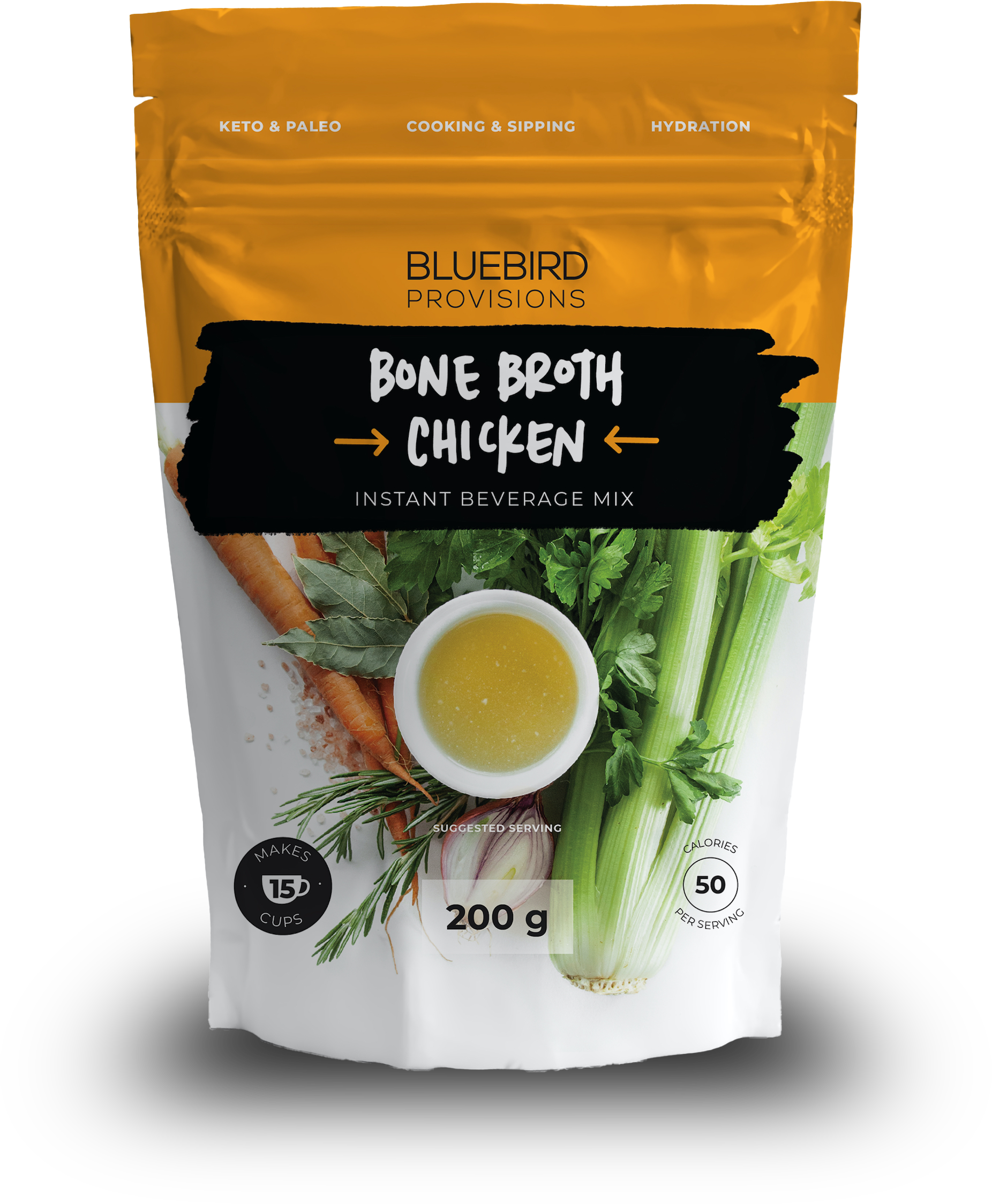
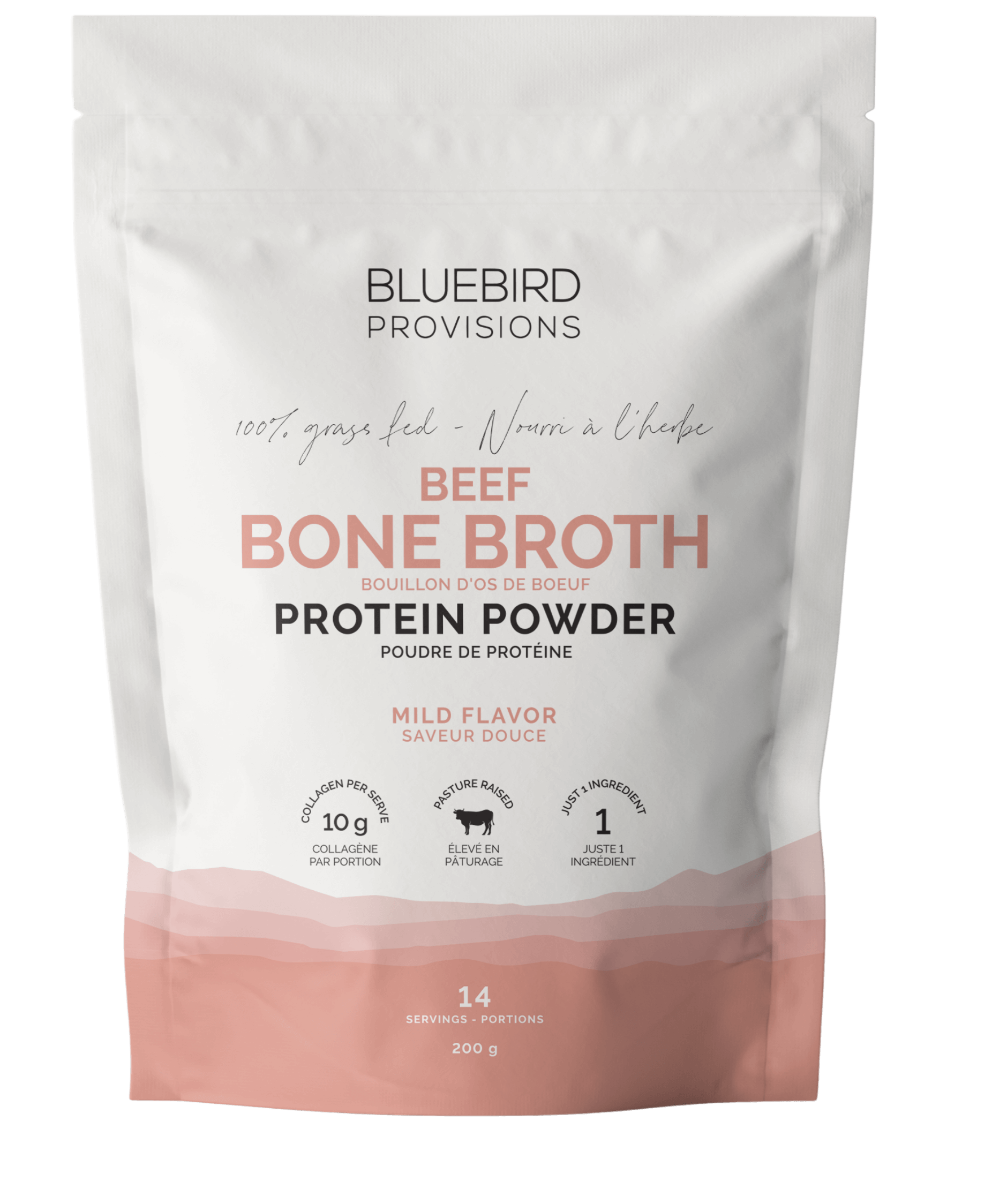
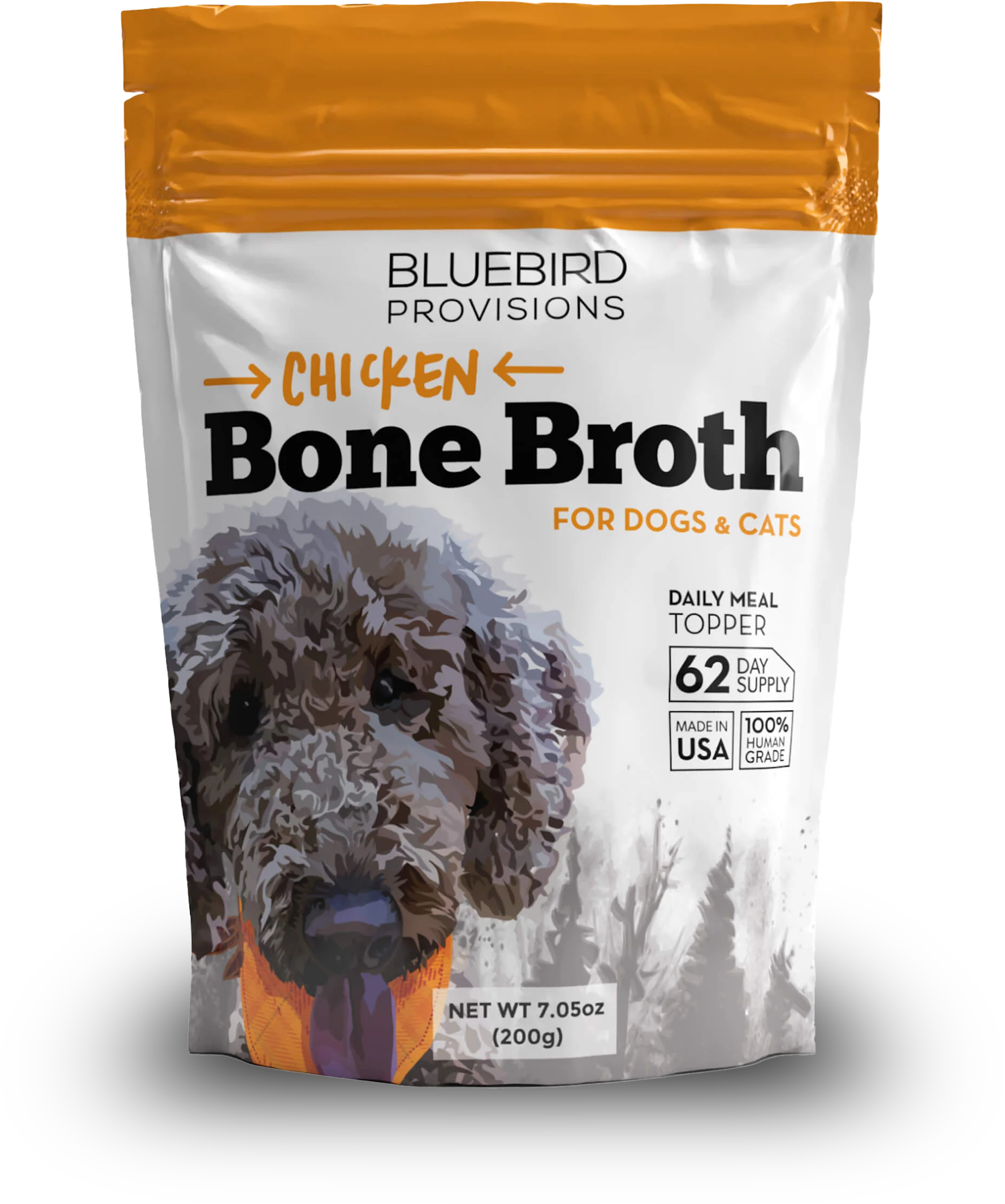
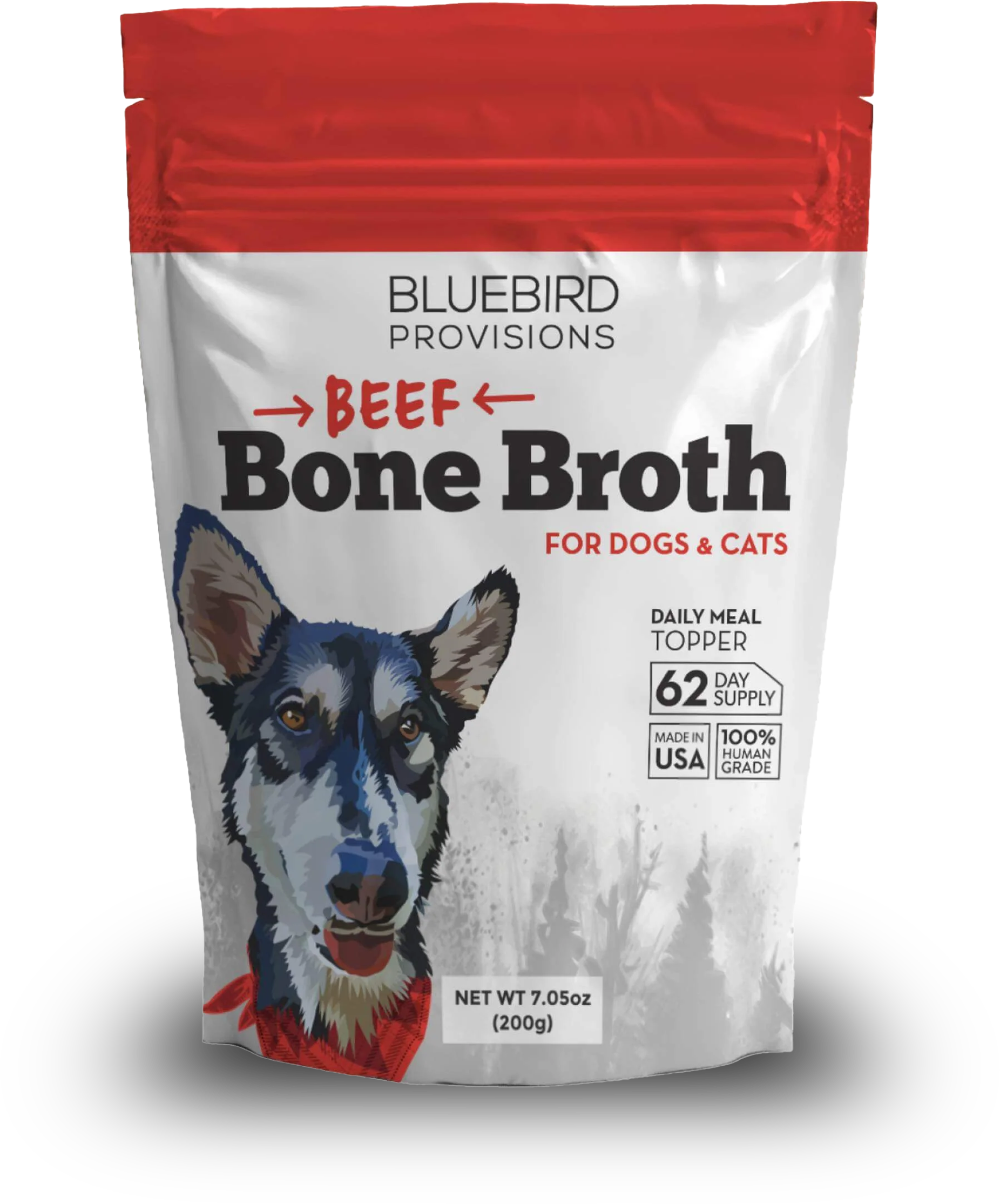
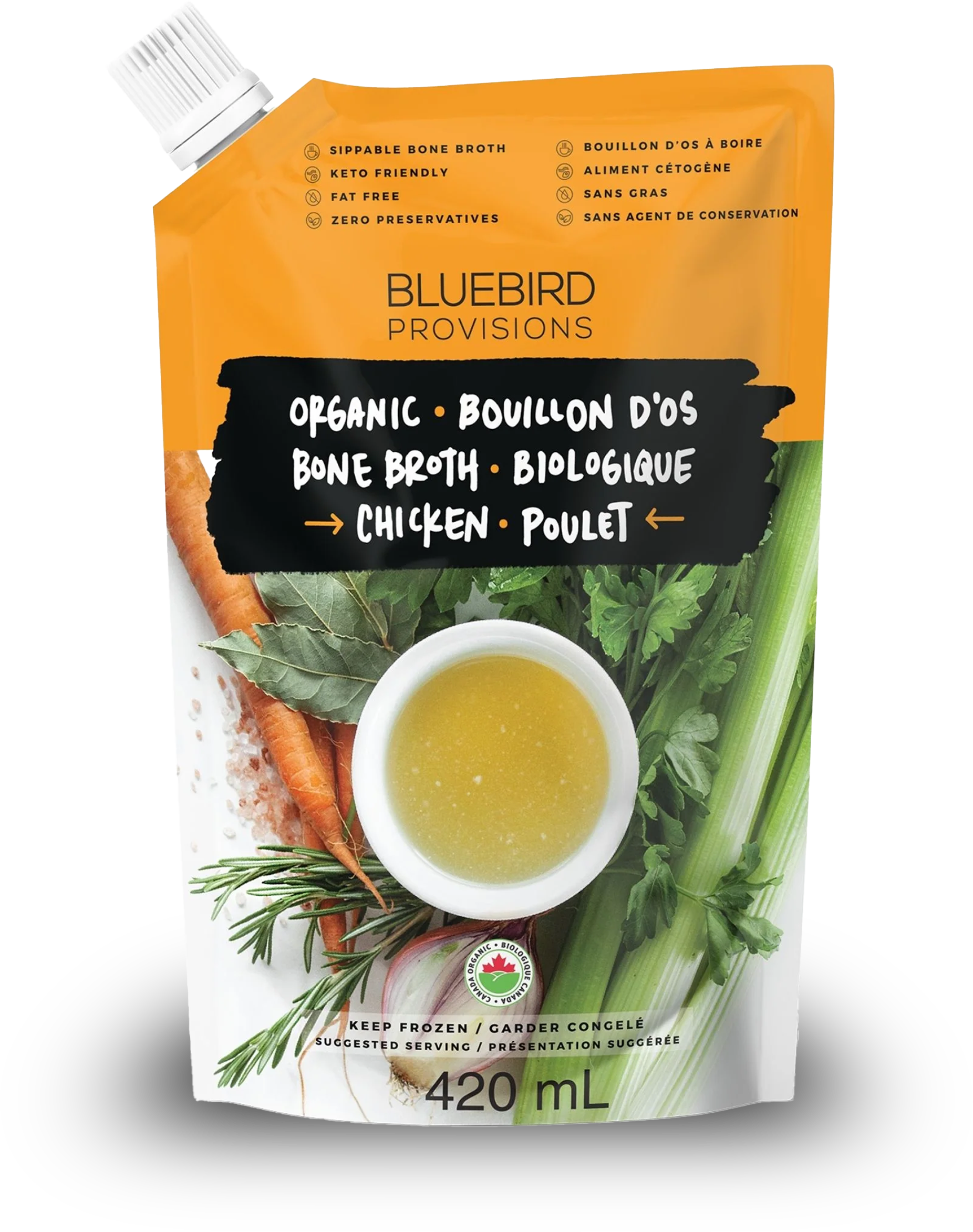
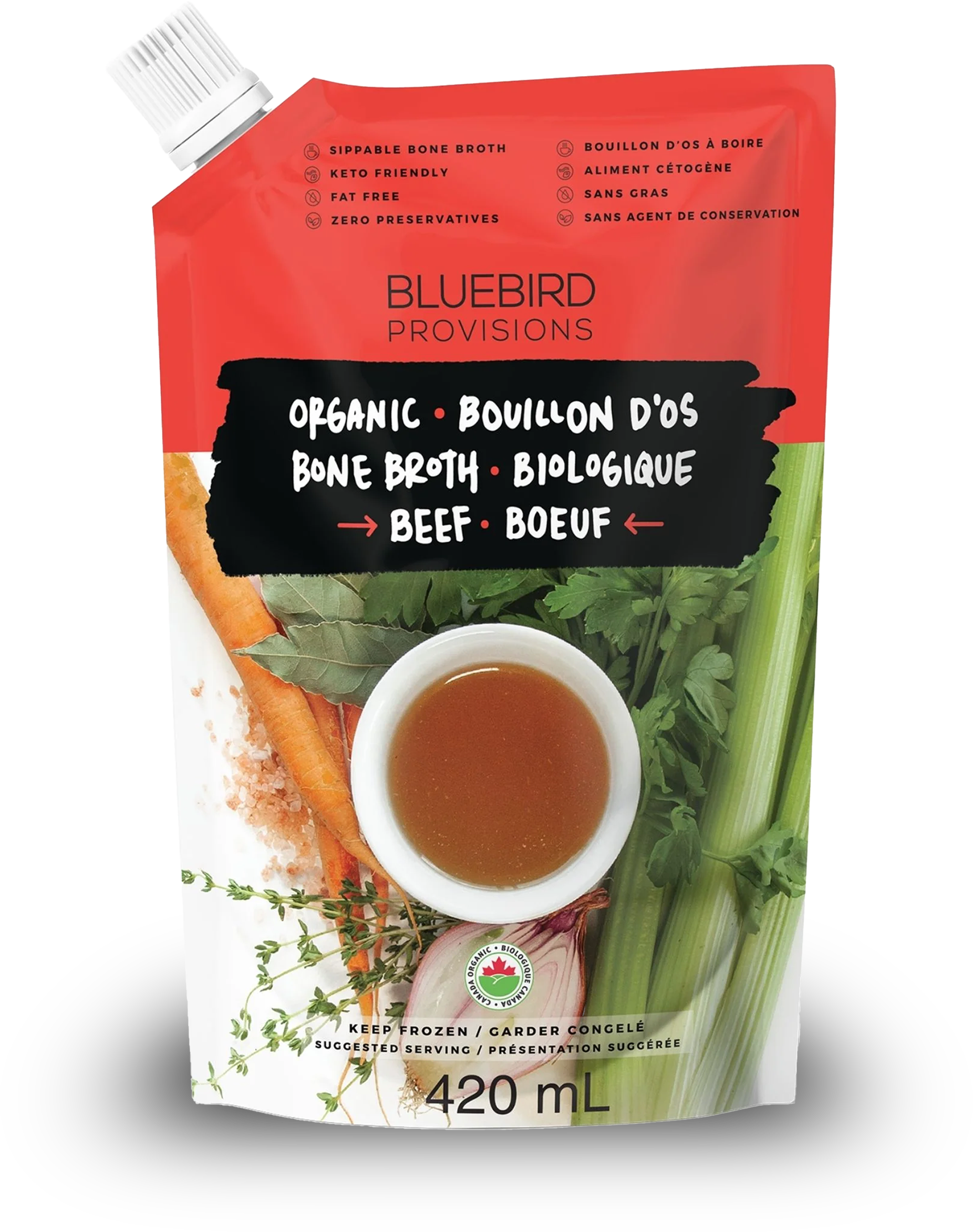

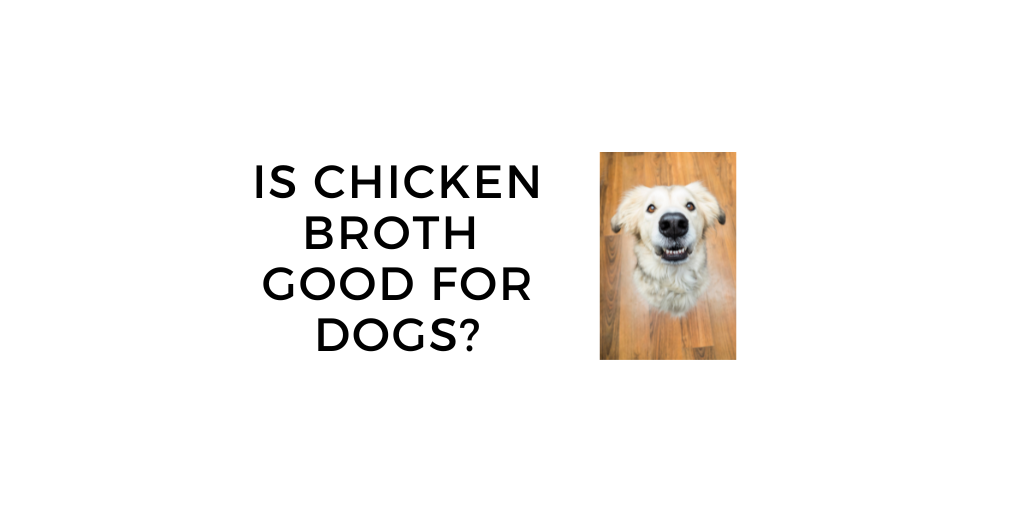

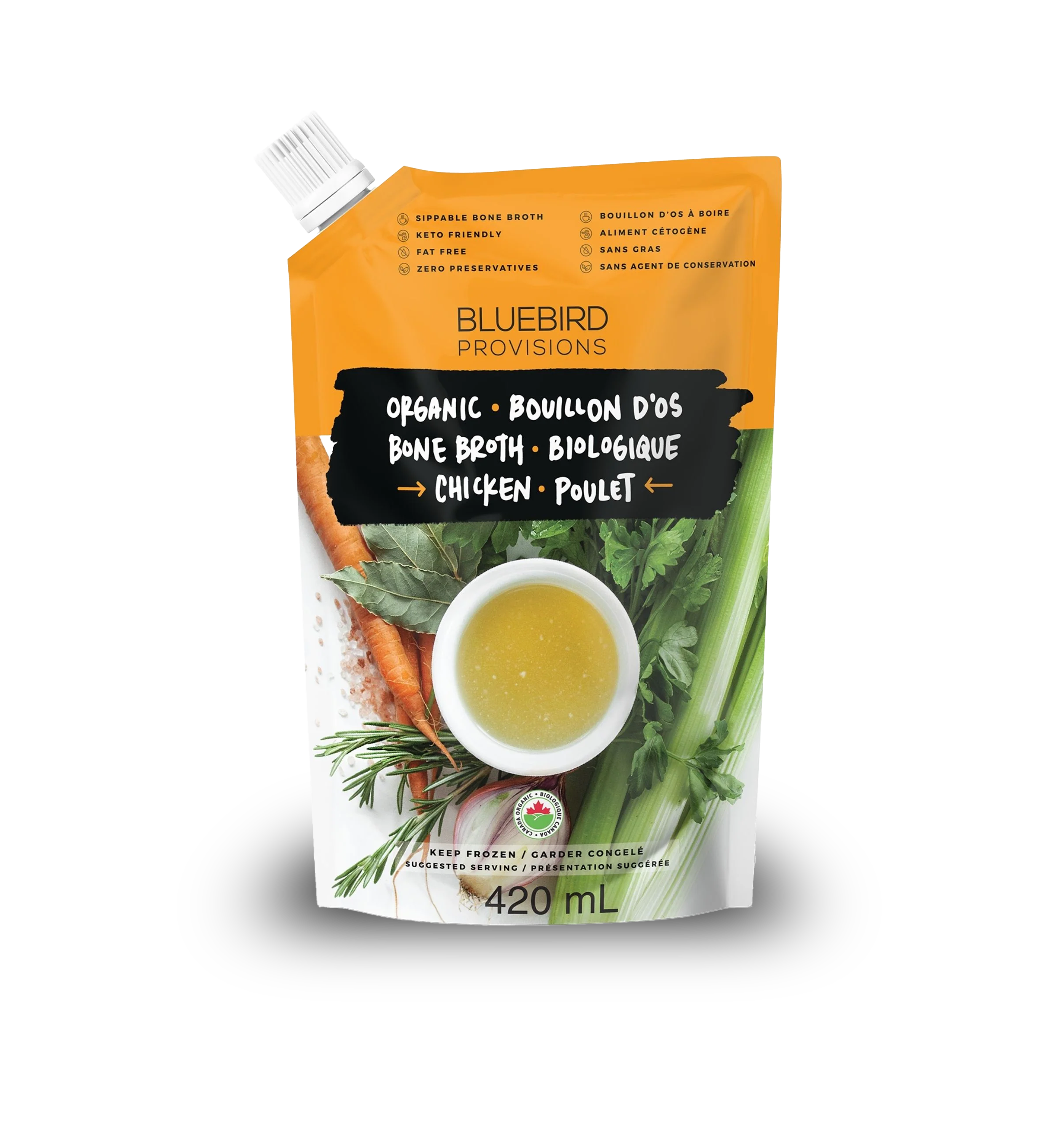
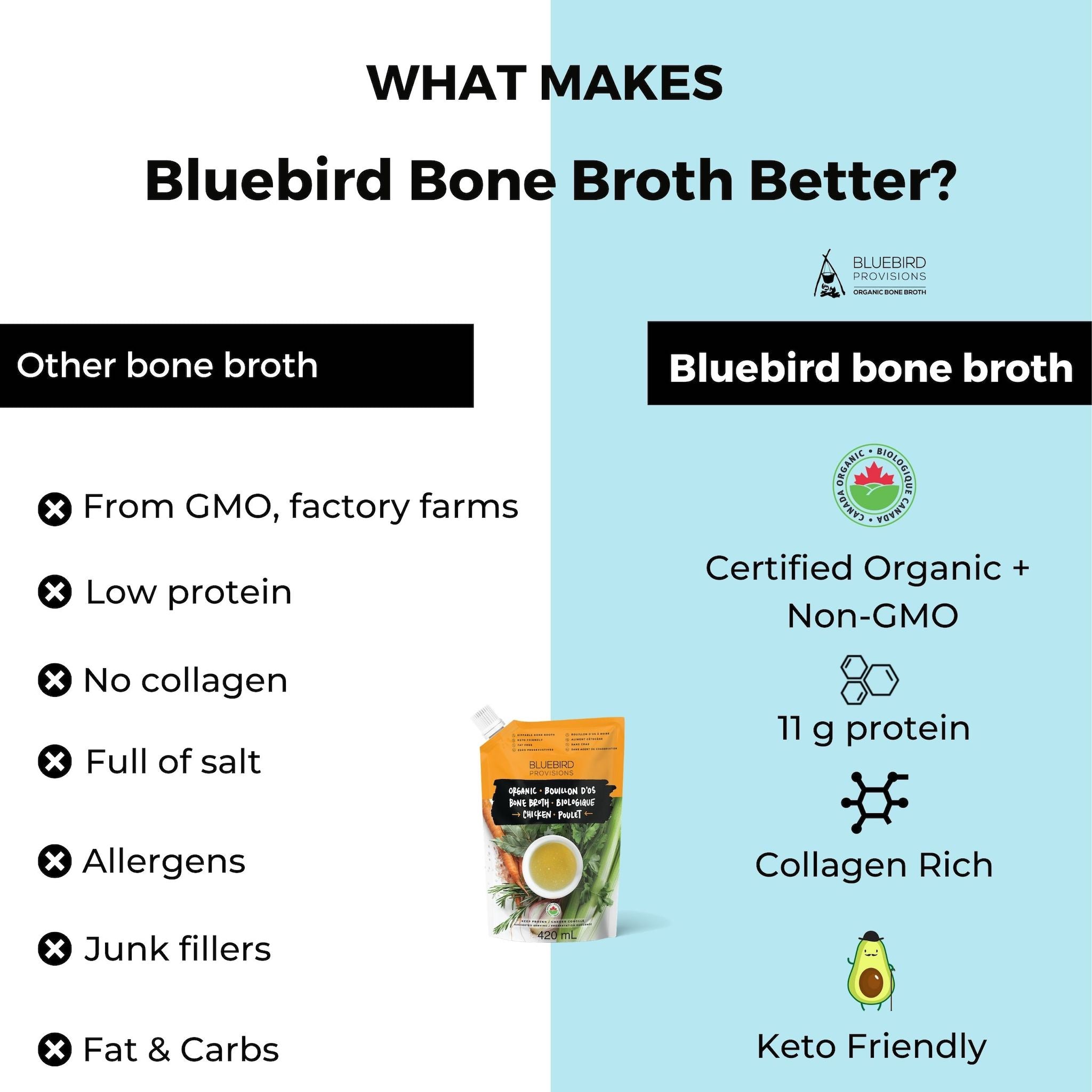
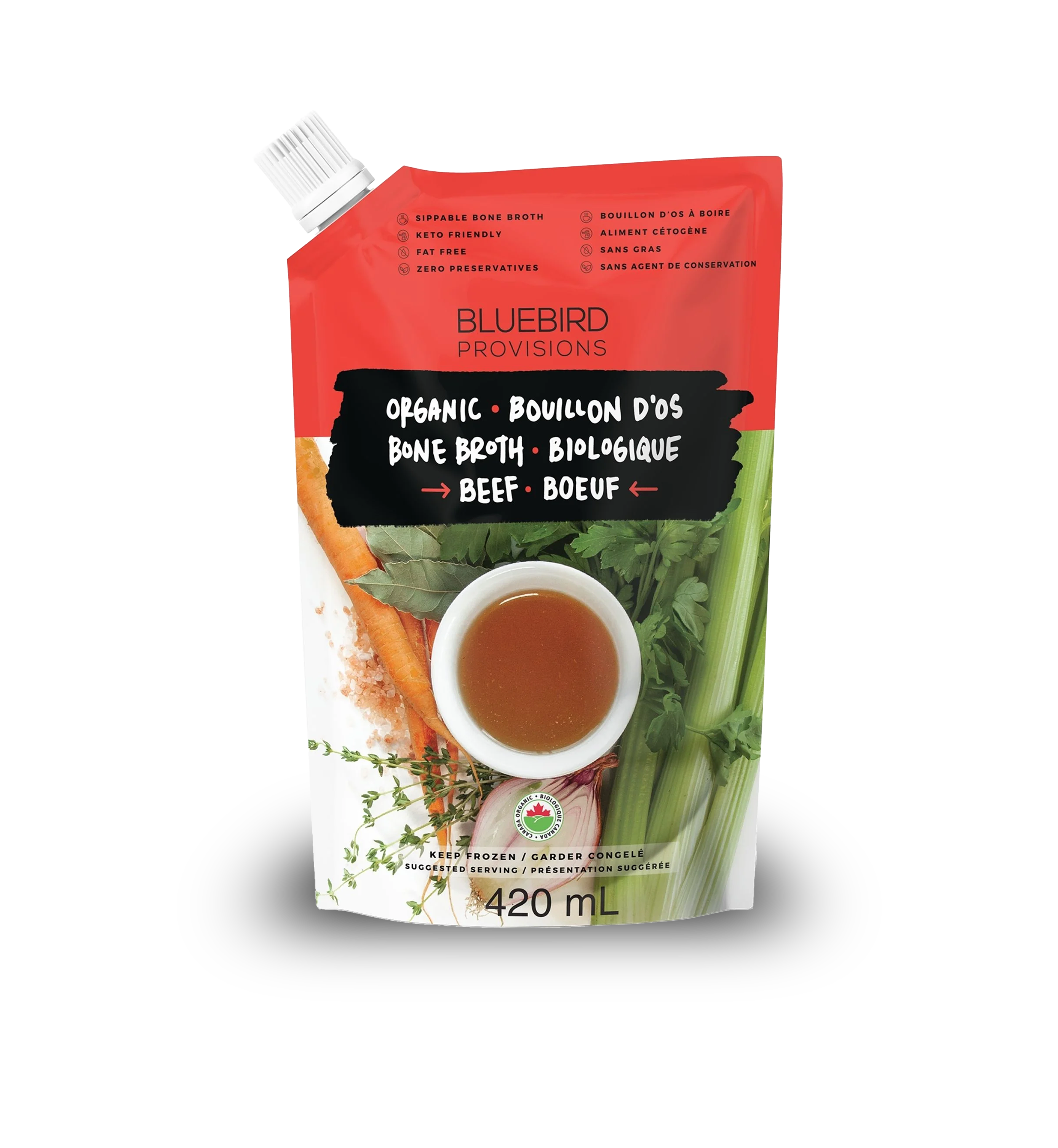
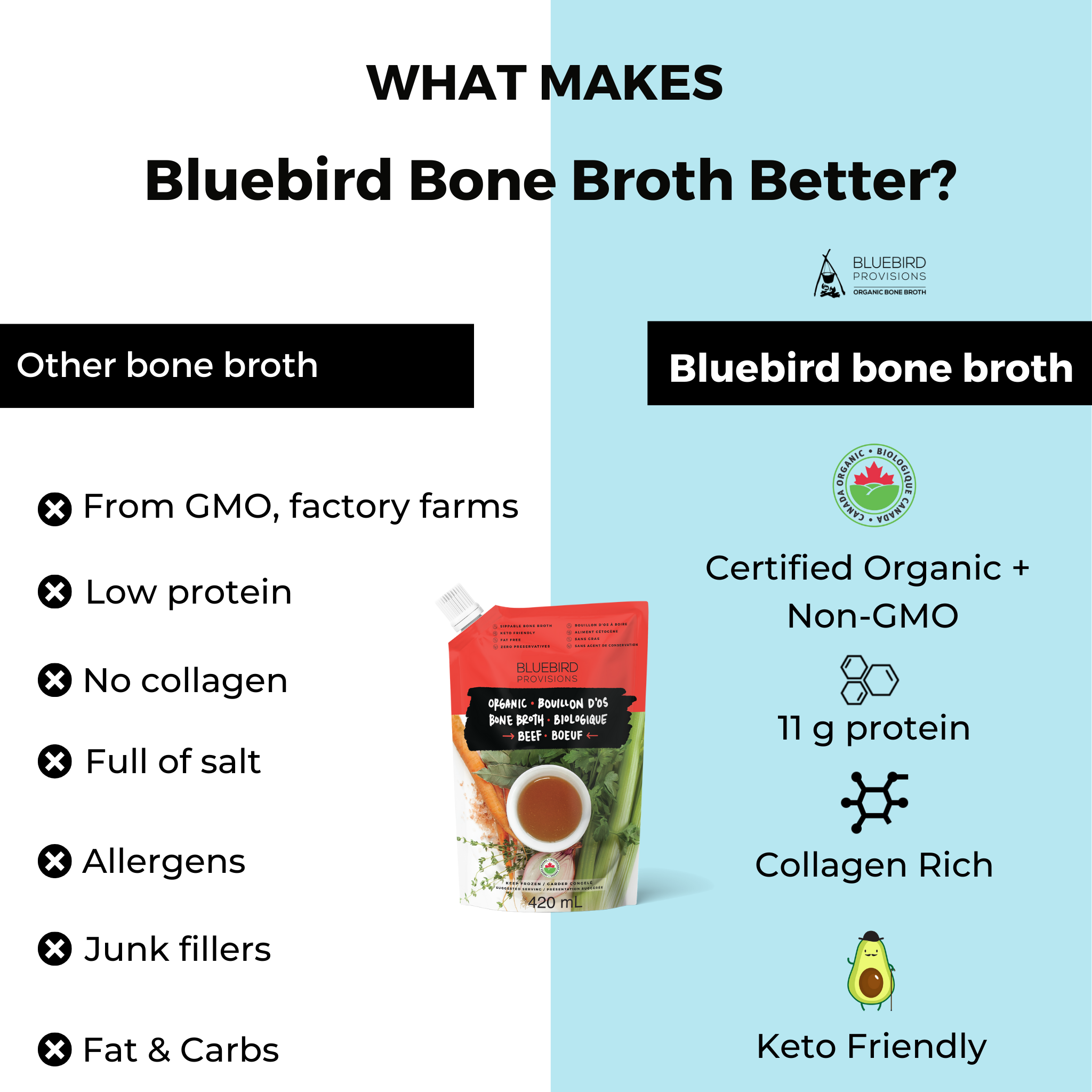
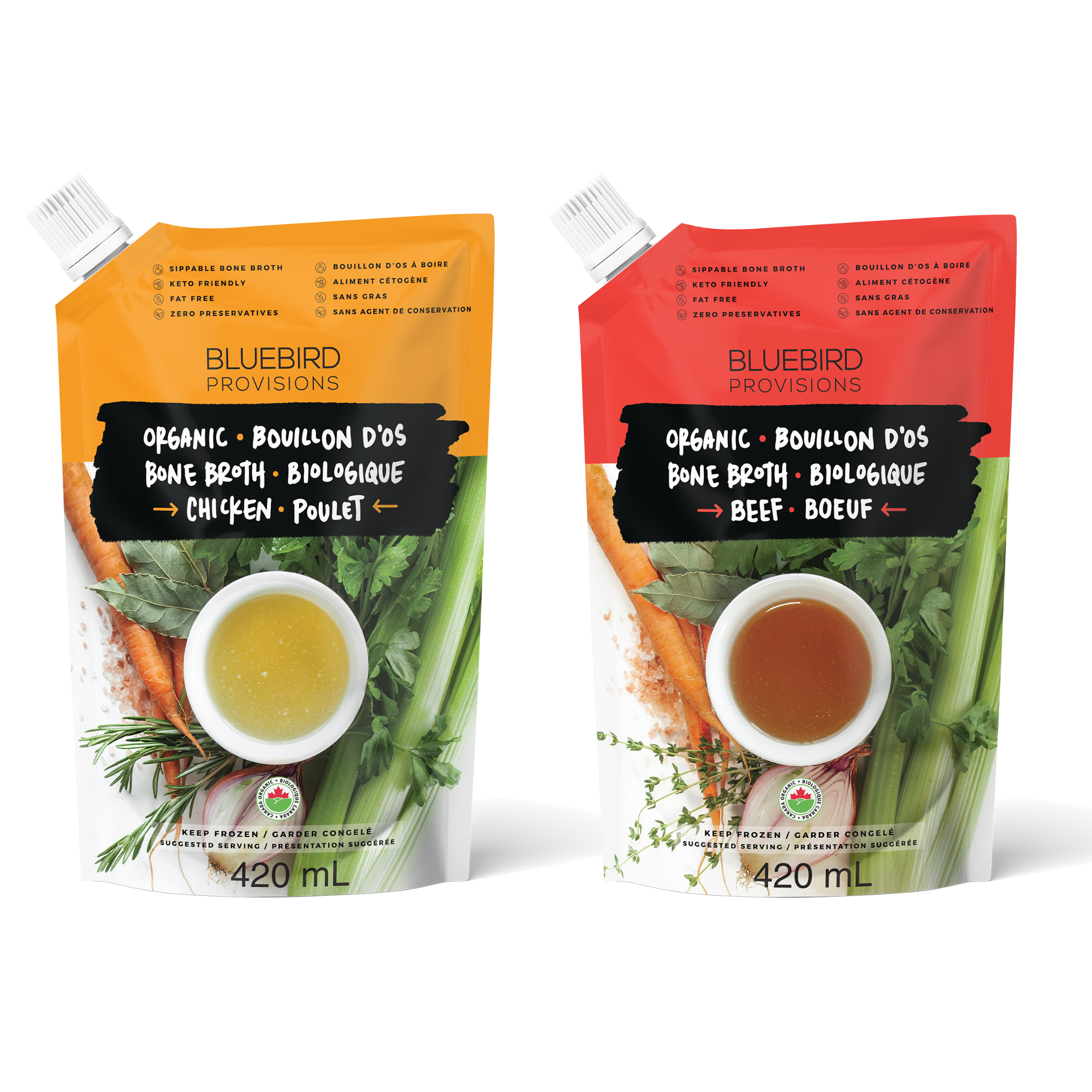

Leave a comment
This site is protected by hCaptcha and the hCaptcha Privacy Policy and Terms of Service apply.